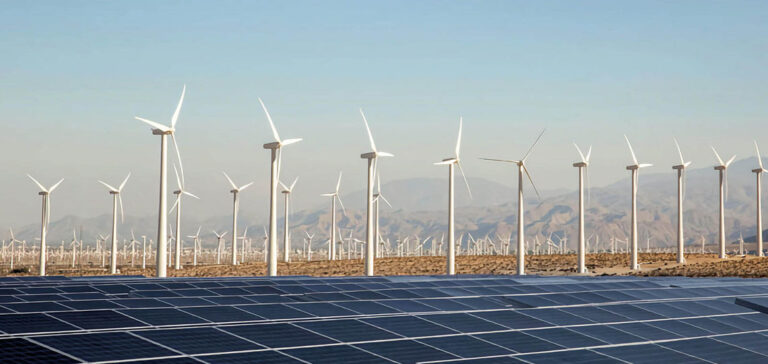Vietnam, in pursuit of a major energy transition, is looking to phase out the use of coal by the 2040s and achieve carbon neutrality by 2050. However, this ambitious ambition is confronted by the reality of a booming economy and ever-increasing energy demand.
Competitiveness of Solar Energy
According to a recent report by BloombergNEF (BNEF), renewable energies, particularly large-scale solar power, offer an economical and sustainable alternative for Vietnam. Indeed, large-scale solar power has already established itself as the country’s cheapest source of electricity. The levelized cost of electricity (LCOE) for new solar projects currently ranges from $53 to $105 per megawatt-hour, compared with $84 to $104/MWh for a gas-fired combined-cycle power plant (CCGT) and $75 to $94/MWh for a coal-fired plant. The growing competitiveness of renewable energies is a major asset for Vietnam.
The benefits of renewable energies
BNEF’s analysis predicts that by 2030, solar energy combined with batteries will become even more affordable than building new thermal power plants. Similarly, onshore wind power combined with batteries will also become more cost-effective by the first half of the 2030s. Although these hybrid power plants cannot compete with coal- or gas-fired plants in terms of flexibility, they offer an intermediate solution for Vietnam in its quest for cleaner, more sustainable energy.
Caroline Chua, co-author of the report, emphasizes that “renewable energies are now both an economic and a sustainable choice for Vietnam”. In addition to the economic benefits, they contribute to energy security by reducing the country’s dependence on imports of liquefied natural gas (LNG) and coal. What’s more, this transition to renewable energies creates new job opportunities, boosting Vietnam’s economic growth.
Challenges facing thermal power plants
However, despite the competitiveness of renewable energies, Vietnam is still planning to build new coal- and gas-fired power plants this decade. The underlying idea is that these power plants could run on cleaner fuels, such as hydrogen or ammonia, from the mid-2030s. However, BNEF’s analysis shows that retrofitting thermal power plants to use these fuels would not be more economical than deploying renewable energies.
The Importance of Green Hydrogen
Another key finding of the report is that building new large-scale ground-mounted or floating solar power plants is already more cost-effective than running existing thermal power plants. This trend should also apply to onshore wind power by the early 2030s. To achieve carbon neutrality, thermal power plants would have to burn only green hydrogen or ammonia. However, this approach would be considerably more expensive, exposing Vietnam to significant financial risk.
Isshu Kikuma, co-author of the report, argues that “building more thermal power plants on the assumption that they can be retrofitted to use clean hydrogen or ammonia will expose Vietnam to significant financial risk.” Rather than relying on complex, emerging technologies to meet its carbon neutrality targets, Vietnam could prioritize domestic clean hydrogen for the decarbonization of hard-to-decarbonize sectors such as steel production.
In short, renewable energies, in particular solar and wind power, represent a viable and cost-effective solution to the growing demand for electricity in Vietnam. This transition to cleaner energy sources is essential to achieving the country’s carbon neutrality goals. It is crucial that Vietnam continues its efforts in the energy sector, while guaranteeing energy security and accessibility for all.






















